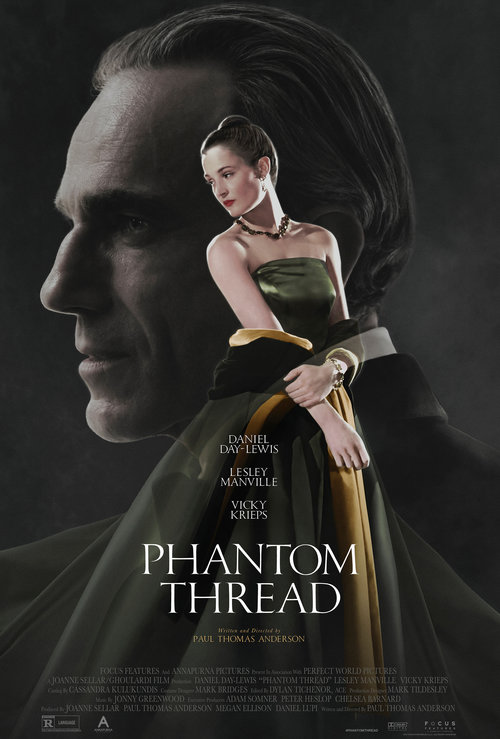Summary:
Somewhere in Northern Italy, during the summer of 1983, seventeen-year-old Elio begins a relationship with his father’s research assistant, Oliver.
My Thoughts:
AUTHOR's NOTE: I find it very ironic that this film is nominated for Best Picture this year. There is absolutely no doubt in my mind that this film deserves the nomination; it is beautifully shot, incredibly acted, and wonderfully written. But it also comes at a time when all of Hollywood is up in arms against sexual misconduct, and this film is about a twenty-four-year-old man beginning a relationship with a seventeen-year-old boy. The moral ambiguity is something that Armie Hammer’s character wrestles with throughout, and that pseudo-Nabokovian moral gray area is something that gives this film quite a bit of depth. As a work of art, it is quite exquisite, but if this subject matter offends you, don’t watch it.
Every summer, Mr. Perlman (Michael Stuhlbarg, “The Shape of Water”, “The Post”) invites a student to his villa in Northern Italy to assist with his research; this summer, it’s Oliver (Armie Hammer, “The Social Network”, “The Man From U.N.C.L.E.”). Elio, (Timothée Chalamet, “Lady Bird”, “Interstellar”) Mr. Perlman’s son, watches Oliver from his room with his sort-of girlfriend Marzia (Esther Garrel). Elio goes down to meet Oliver, and then brings him up to his room, informing him that they share a bathroom. While Elio is talking, Oliver lies down on the bed and passes out immediately. Elio shakes his head and goes into his own room.
At breakfast the next morning, Elio offers to show Oliver around the town, and Oliver accepts. They ride bikes through the wildflower-blanketed countryside, past streams (water is a recurring theme between Elio and Oliver, more on that later), and past antiquated villas boasting gorgeous architecture. Shortly after they reach the town, however, Oliver ditches Elio. Disheartened, Elio returns home, where he complains to his parents about how Oliver blew him off. His parents smile and tell him not to worry too much about it.
As the story goes on, Elio comes to bond with Oliver over their Jewish heritage, and appreciations for language, literature, music, and history. Elio also continues his relationship with Marzia, but both of them seem to realize that the relationship is mostly unilateral. Eventually, Elio tells Oliver that he has feelings for him, and the two of them engage in a relationship.
The Good:
There isn’t much of a conventional plot here, but that’s what makes this movie stand out. The whole of it feels like a warm-regarded memory of a lazy, sunny holiday in the heavenly Italian countryside. It’s a refreshing dip into a different type of culture; one that is rich in history and etymology and music. The cinematography lends itself to the scenery and architecture; everything is so bright, so alive. The fleeting nature of beauty and thirst for life seems to be constant themes in this film. Mr. Perlman says it wonderfully: “How you live your life is your business, just remember, our hearts and our bodies are given to us only once. And before you know it, your heart is worn out, and, as for your body, there comes a point when no one looks at it, much less wants to come near it.“
The appreciation for the life captured in each frame becomes a sort of shared bond between the boys. Water becomes a symbol of their love for each other. At first, before their relationship truly begins, they sit round the edges of a small pool, dangling their feet in the water. But as the story progresses, the boys go swimming; when their relationship begins to progress they visit the ocean; right after Elio comes out to Oliver, Elio shows Oliver a secret swimming place. But beyond the water metaphor, there are some very power symbols woven into the background and even in the blocking. There is a very prominent shot of Elio picking a peach, and this becomes a reminiscent of the religious icon- Eve taking the fruit and committing the first sin. The scene where Elio comes out to Oliver is staged by a memorial for a particularly arduous battle during World War One; the boys start on one side of the monument, and as Elio reveals his feelings they pass the monument- the symbolism the biggest battle for Elio was coming out. On the other side of the monument, Elio looks up and sees a cross- his faith for coming out has been rewarded and he is given a kind of salvation in his relationship with Oliver.
Chalamet was nominated for his performance, and he absolutely earned it. He switches seamlessly between three languages - English, French, and Italian- he plays Bach in three, distinct styles, and there are many scenes that are composed of nothing more than him emoting his feelings and woes, but he does so with elegant grace. Hammer does a great job of showing the inner qualms Oliver has about starting a relationship with someone younger- the moral ambiguity here is honestly what makes the film interesting, and Hammer does a great job subtlety and silently wrestling with this. The ever-underappreciated Michael Stuhlbarg is wonderful as Elio’s father. I would actually say the best scene in the whole film is between Stuhlbarg and Chalamet (the scene near the end on the couch, for those who have seen it). Stuhlbarg is in three of this year’s Best Picture Nominees- “The Shape of Water” and “The Post” being the other two.
The Bad:
This is one of the most expertly executed films I’ve seen this year; it is a gorgeous journey to witness, but it is a journey across questionable moral grounds. As I said above, I find it strange that in a year with the academy up in arms against sexual deviants, one of the best films of the year is about a questionable relationship. I’m not saying that what Oliver and Elio engaged in was anywhere near as bad as the things of which Harvey Weinstein is accused, but the film does come at a strange time. Their relationship, while borderline inappropriate, was also indisputably founded on love, not lust.
Verdict:
This film is definitely not for everyone. I enjoyed it as a work of art, in the same way that I enjoyed Lolita by Nabokov as a work of art (or “Lolita” by Stanley Kubrick) (though Elio and Oliver's relationship is not nearly as disturbing as the relationship between Humbert Humbert and Lolita). I believe in order to truly appreciate art like this one really needs to be willing to try to see things from the character’s perspectives. If you can do that, then this film does a wonderful job of showing us an unforgettable summer in Italy; it is a culturally rich masterpiece, one I’d be happy to dive into again.
Minor Spoilers: Elio and Oliver’s story is not yet done. The film ends on a semi-cliffhanger. The director, Luca Guadagnino (“Suspiria”), has spoken about how the next film will be set a little later in the 1980s, and will check in on Elio and Oliver’s relationship much like Richard Linklater’s “Before Trilogy” checks in on Jesse and Celine’s relationship. I, for one, am quite interested to see where the story progresses from here.
Review Written By:











